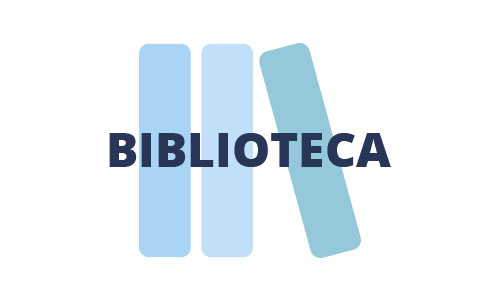Bersabe Moran, Rosa

Rosa María Bersabé Morán
Profesora Titular
Tel: 952132506 E-mail: bersabe@uma.es
Despacho: 2.084D
BREVE CURRÍCULUM:
Realizó sus estudios de Psicología en la Universidad Complutense de Madrid (UCM), obteniendo el grado de licenciada en el año 1990. Durante los dos últimos cursos académicos, fue becaria de “Introducción a la Investigación” en el Consejo Superior de Investigaciones Científicas. Tras la licenciatura, obtuvo el título de “Experto en Estadística para Profesionales” por la UCM.
Cursó sus estudios de doctorado en el departamento de Metodología de las Ciencias del Comportamiento de la UCM, siendo becaria del Plan Nacional de Formación de Personal Investigador (1990-1994). Durante ese periodo, realizó dos estancias de investigación trimestrales en el Psychological Science Building de la Universidad de Purdue (Indiana, Estados Unidos), bajo la tutela del Dr. Busemeyer. En el año 1996, defendió su tesis doctoral titulada “Sesgos cognitivos en los juegos de azar: La ilusión de control”, dirigida por la Dra. Martínez Arias.
En noviembre de 1994, inicia su actividad docente en el área de Metodología de las Ciencias del Comportamiento de la Universidad de Málaga: primero, como Ayudante de Facultad a tiempo completo; después, como Profesora Asociada a tiempo completo; y, desde febrero de 2003, como Profesora Titular de Universidad.
-------------------------------------------------------------------------------------------------------------------------
DOCENCIA EN:
Grado en Criminología
TUTORÍAS
(tras acceder al Portal Académico, seleccionar CURSO y elegir ASIGNATURA)
-------------------------------------------------------------------------------------------------------------------------
INVESTIGACIÓN EN:
-------------------------------------------------------------------------------------------------------------------------
PREMIOS:
-------------------------------------------------------------------------------------------------------------------------
PUBLICACIONES:
Rivero, M., Vilaseca, R., Cantero, M. J., Navarro-Pardo, E., Ferrer, F., Valls-Vidal, C., & Bersabé, R. M. (2022). Parenting of Spanish mothers and fathers playing with their children at home. PloS one, 17(6), e0266762. https://doi.org/10.1371/journal.pone.0240320
Hurtado-Santiago, S., Guzmán-Parra, J., Mayoral, F., & Bersabé, R. M. (2022). Iconic Therapy for the reduction of borderline personality disorder symptoms among suicidal youth: a preliminary study. BMC psychiatry, 22(1), 1-11. https://doi.org/10.1186/s12888-022-03862-x
Vidal, F. F., Momplet, R. V., & Bersabé, R. M. (2022). Relationship between parental perceptions, family income and support received with family quality of life in families with a child with an intellectual disability. Siglo Cero Revista Española sobre Discapacidad Intelectual, 53(4), 89-108. https://doi.org/10.14201/scero202253489108
Vilaseca Momplet, R. M., Ferrer, F., Rivero García, M. M., & Bersabé, R. M. (2021). Early intervention services during the COVID-19 pandemic in Spain: toward a model of family-centered practices. Frontiers in Psychology, 2021, vol. 12, p. 738463. https://doi.org/10.3389/fpsyg.2021.738463
Vilaseca R., Rivero M., Ferrer F., Bersabé R. M. (2020). Parenting behaviors of mothers and fathers of young children with intellectual disability evaluated in a natural context. PLoS ONE, 15(10): e0240320.https://doi.org/10.1371/journal.pone.0240320
Vilaseca, R. M., Rivero, M., Bersabé, R. M., Cantero, M. J., Navarro-Pardo, E., Valls-Vidal, C., Ferrer, F. (2019). Demographic and Parental Factors Associated With Developmental Outcomes in Children With Intellectual Disabilities. Frontiers in psychology, 10, 872. http://doi.org/10.3389/fpsyg.2019.00872
Vilaseca, R., Rivero, M., Bersabé, R. M., Navarro-Pardo, E., Cantero, M. J., Ferrer, F., Innocenti, M. S., Roggman, L. (2019). Spanish validation of the PICCOLO (parenting interactions with children: checklist of observations linked to outcomes). Frontiers in Psychology, 10 – 680. http://doi.org/10.3389/fpsyg.2019.00680
Hurtado-Santiago, S., Guzmán-Parra, J., Bersabé, R. M., & Mayoral, F. (2018). Effectiveness of iconic therapy for the reduction of borderline personality disorder symptoms among suicidal youth: study protocol for a randomised controlled trial. BMC psychiatry, 18(1), 277. https://doi.org/10.1186/s12888-018-1857-x
Ferrer, F., Vilaseca, R., & Bersabé, R. M. (2016). The Impact of Demographic Characteristics and the Positive Perceptions of Parents on Quality of Life in Families with a Member with Intellectual Disability. Journal of Developmental and Physical Disabilities, 28(6), 871-888. https://doi.org/10.1007/s10882-016-9515-z
Ferrer, F., Vilaseca, R. M., & Bersabé, R. M. (2015). Kansas inventory of parental perceptions: Spanish adaptation of a shortened form. Journal of Developmental and Physical Disabilities, 27(6), 789-809. https://doi.org/10.1007/s10882-015-9456-y
Rivas, T., Franco, K., Bersabé, R., & Berrocal, C. (2013). Spanish Version of the Eating Atttudes Test (EAT-40): Dimensionality, Reliability, Convergent and Criterion Validity. The Spanish Journal of Psychology, 16 (e59), 1-11. http://dx.doi.org/10.1017/sjp.2013.61
Bersabé, R., Martínez-Arias, R., & Tejeiro, R. (2012). Los que se arriesgan, ¿saben cuánto se arriesgan? Apuntes de Psicología, 30 (1-3. Número especial: 30 años de Apuntes de Psicología), 361-368. http://www.apuntesdepsicologia.es/index.php/revista/article/view/418
Bersabé, R., & Rivas, T. (2011). Application of a Non-proportional Odds Model for Setting Multiple Cutoff Scores on a Test. Journal of Communication and Computer, 8 (11), 931-938.
Rivas, T., Bersabé, R., Jiménez, M., & Berrocal, C. (2010). The Eating Attitudes Test (EAT-26): Reliability and validity in Spanish female samples. The Spanish Journal of Psychology, 13 (2), 1044-1056. http://dx.doi.org/10.1017/S1138741600002687
Bersabé, R., & Rivas, T. (2010). A general equation to obtain multiple cut-off scores on a test from multinomial logistic regression. The Spanish Journal of Psychology, 13 (1), 494-502. http://dx.doi.org/10.1017/S1138741600004042
-------------------------------------------------------------------------------------------------------------------------






